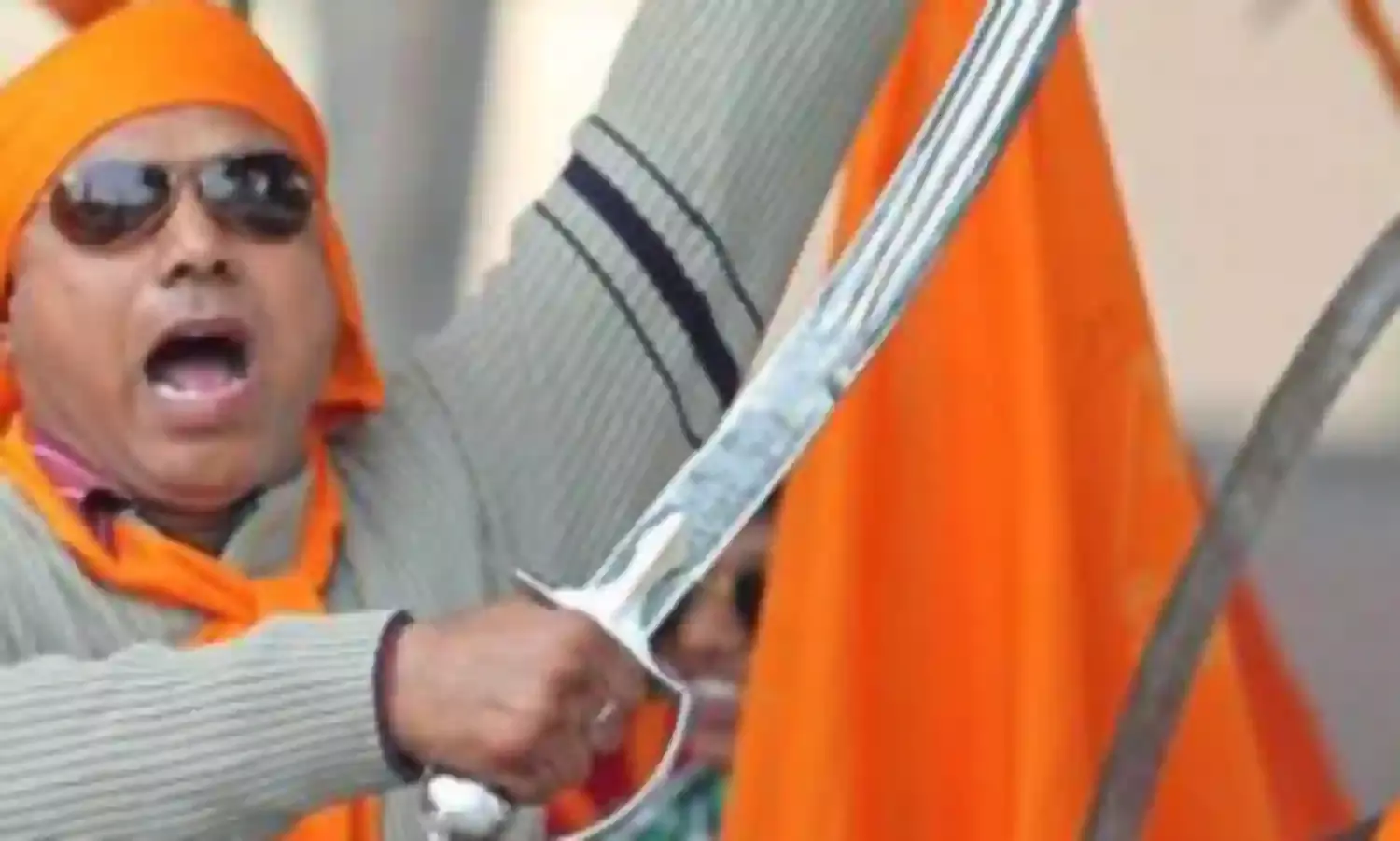Temple Politics Challenges the Supreme Court
PM Modi and Sangh suggest SC is compromised, may issue Ayodhya ordinance

NEW DELHI: Just a few months ago, in its verdict decriminalising Section 377 of the IPC the Supreme Court said, ‘Our Constitution is a living and organic document, capable of expanding with the changing needs and demands of the society. The courts must commemorate… its golden principles to which they bear their foremost allegiance, and must robe themselves in the armoury of progressive and pragmatic interpretation, to combat the evils of inequality and injustice that try to creep into society.’
Justices Misra and Khanwilkar added, ‘The role of the courts gains more importance when the rights which are affected belong to a class of persons or a minority group who have been deprived of their basic rights since time immemorial.’
But Hindu supremacist groups seem to be thinking the other way: that majoritarian beliefs overshadow constitutional beliefs and the rule of law. With state support, their agenda seems to be to reject outright the rule of law and defy the orders of the highest court.
In the process, right wing Hindu groups are well on their way to rupturing and reworking the nation’s social fabric.
With legislative elections underway in five states – and soon perhaps in Jammu and Kashmir – and general elections to follow, a growing chorus of Hindutva voices has returned to raising the Babri Masjid Ram Mandir issue. There are calls for the Modi government to issue an ordinance or pass a law which would bypass judicial consideration of the Ayodhya title dispute, currently underway in the Supreme Court.
At a rally organised in Nagpur recently, Rashtriya Swayamsewak Sangh (National Volunteers’ Association) chief Mohan Bhagwat was reported in the media as saying, “the court has a busy schedule or maybe it does not understand the sensibilities of the society. The Ram Temple case is not a priority for them. The government should think of alternative ways, like bringing in an ordinance for the construction of the temple.”
Bhagwat declared, ‘I have waited many years and now the time for patience is over. We are now in a decisive phase of the agitation.’
Prime Minister Narendra Modi too joined in, according to reports, and claimed at an election rally in Alwar that the Congress had asked judges of the Supreme Court to delay hearing the Ayodhya title dispute until after the 2019 polls.
‘The Congress scared the apex court judges with the threat of impeachment when they tried to hear the case,’ the prime minister is reported to have said.
PM Modi made his statement on the same day the VHP (Vishwa Hindu Parishad, or World Hindu Council) organised a Dharma Sabha or Council of Religion in Ayodhya, to push for the construction of a Ram temple upon the disputed site.
Senior Congress leader Kapil Sibal accused Modi of making ‘defamatory’ remarks about the judiciary, pointing out to the media that Chief Justice Ranjan Gogoi himself had said last month that the Ram Mandir issue was not a priority for the court, when he deferred hearing the case to January 2019.
At the VHP’s Dharma Sabha, RSS functionary Krishna Gopal said according to reports that ‘Hindu youth may go to any extent on the Ram Janmabhoomi issue… Hindus want temples in Ayodhya, Kashi and Mathura… We should remind ourselves that the Ram Mandir issue is very important for Hindu society.’
The RSS leader also said that Hindu society had been ‘insulted’, and to wash off that insult it would need to create a Ram Mandir on the disputed site as soon as possible.
Addressing the same gathering Ram Bhadracharya, founder of the Tulsi Peeth Seva Nyas (Holy Basil Branch Service Organisation) assured those assembled that the BJP (Bharatiya Janata Party, or Indian People’s Party) would construct a Ram temple in Ayodhya.
‘Only a few days ago I spoke to a senior and influential minister in the central government, who told me that Prime Minister Narendra Modi was going to do something about the Ayodhya issue before December, but due to elections in five states it could not happen. The minister assured me Prime Minister Modi had said that after December 11, a major decision would be taken on the Ram temple,’ Bhadracharya said.
Vice-president of the VHP Champat Rai chimed in: ‘Ayodhya is the birthland of Ram and only a Ram Mandir will be built here. There is no place for the mosque. We need the whole ground. The land will not be divided.’
He added that there would be no more ‘assembly’ on the temple issue, and that construction would begin straightaway.
Taken together these public statements by Hindu nationalists from the prime minister on down, make an open demand: to settle the Ayodhya title dispute by disregarding institutional mechanisms entirely, and by taking the matter into their own hands.
In a manner reminiscent of the Sabarimala agitations, such defiance of constitutional norms by government officials and party leaders has been gaining popularity the past few months.
It is an attempt to undermine our core institutions, and to institutionalise majoritarian beliefs through brute force.



